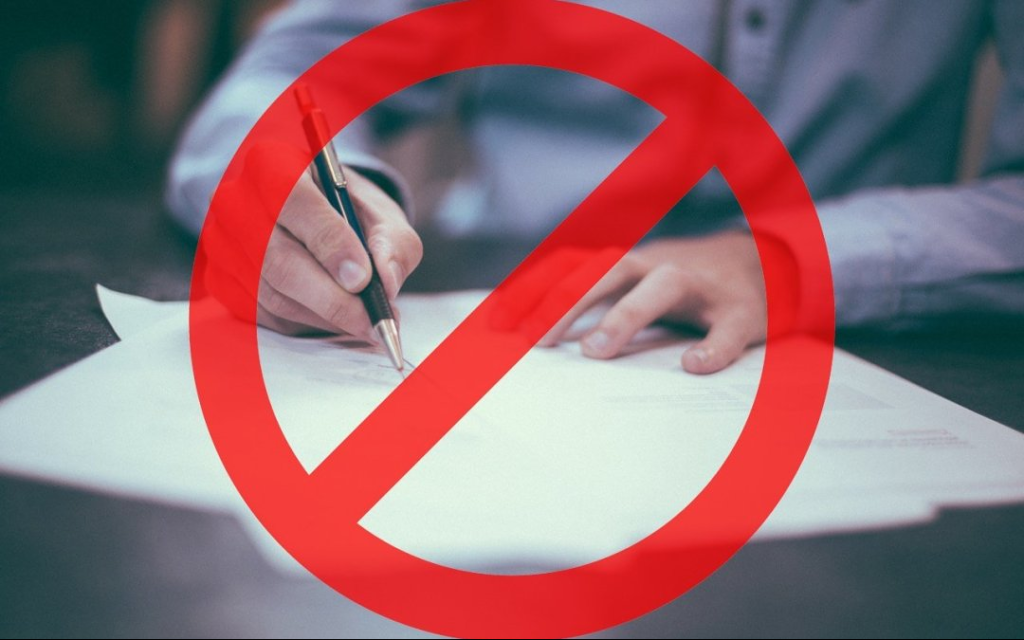Yvette Johnson, 64, is trying to decide if she should co-sign on a car loan for her best friend, whose credit does not allow her to secure one on her own. “My friend and I are like sisters. I’ve known her for over 35 years. I can’t turn her down in her time of need, but I’ve also worked so hard to maintain my excellent credit rating,” says Yvette. ”My friend can be negligent with her bills, but she needs a car to get to work. If I don’t co-sign on a loan for my friend, I’m afraid our friendship will never be the same.”
Over one-third of co-signers, 38 percent, had to pay some or all of a loan because the primary borrower failed to do so, according to a survey conducted by CreditCards.com. Credit scores also dropped for more than a quarter of co-signers because the borrower made late or missed a few payments.
Folks over age 50, in particular, most often find themselves co-signing loans for their children.
You might be damned if you do co-sign and damned if you don’t because 26 percent of the survey’s respondents said the experience damaged the relationship with the person they tried to help out. Lending a hand to a strapped loved one with poor credit is a move that many will make, and they should be prepared for possible adverse outcomes headed their way if they do.
Know what you are getting into before you agree to co-sign on a loan for anyone. Guilt can force someone into helping a loved one borrow money to get a car, a house, or a student loan. Understand, however, that by lending someone a financial hand, you will be liable for the full amount of the debt, plus interest, if the person fails to pay what is owed to the lender.
“Even though co-signing is a well-intended gesture, a defaulted loan could be difficult to repay — especially on a fixed income — and it can be costly and stressful in terms of the possibility of damaging your credit history and in dealing with a debt collector,” said FDIC’s regional ombudsman Kirk Daniels.
Although creditors must notify a co-signer about the debt obligation, Daniels said the FDIC occasionally hears from older co-signers “who didn’t fully understand what they were agreeing to in terms of payment responsibilities.” Remember, when you co-sign a loan or otherwise sign up as a “guarantor,” you agree to become just as liable to pay the loan as the other borrower. So, if a borrower misses or is late with a payment, this can become part of your credit history which can lower your overall credit score.
If you see that the borrower is not holding up their end of an agreement and you want out, it is difficult to do so, particularly, if there are late payments. Lenders are not in business to lose money, and it is rare that one would allow a co-signer to dissolve their agreement.
Regarding student loans, a few lenders may release a co-signer of their obligation after the borrower has made timely payments for a year or more and an updated credit check meets their requirements.
How can you protect yourself if you choose to co-sign a loan?
Well, according to the Federal Trade Commission, you can attempt to negotiate the terms of your commitment before signing on the dotted line. For instance, you can ask to limit your liability to the principal on the loan and exclude any extra costs like late fees or court costs. If you are granted this request, ask the lender to include a statement in the contract. For instance, the Federal Trade Commission suggests this language, ‘The co-signer will be responsible only for the principal balance on this loan at the time of default.’
Ensure you get copies of all documents, including the loan contract, the Truth-in-Lending Disclosure Statement, and all warranties. These papers may come in handy if there’s a dispute between the borrower and the seller. You will probably have to ask the borrower for copies of the contract because the creditor does not have to supply you with any documentation.
Another smart move would be to request that the creditor contact you in writing if a payment is missed so that you can rectify the situation before the loan goes into default.
You should also stay in touch with the borrower to make sure they are making payments as they should, and don’t be afraid to ask because your pockets are on the line. If the borrower is not forthcoming with the info you seek, then contact the lender directly to verify the loan status. Do keep tabs on your credit report as well; check every three to four months to see if any issues have arisen in connection with the loan. Be advised, however, that if a borrower’s loan goes into default, you might not even receive notification. So, by the time you actually learn about the problem, the damage has been done, and you will be unable to do anything about it.
The bottom line is to always keep in mind that someone else’s irresponsible behavior can ruin an excellent credit profile, which can derail any future plans of buying/refinancing a house, purchasing a car, or applying for a credit card.
For more information about what risks you are taking and how you can minimize your risks when co-signing a loan, visit the Federal Trade Commission at consumer.ftc.gov.
